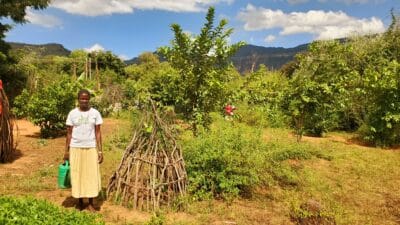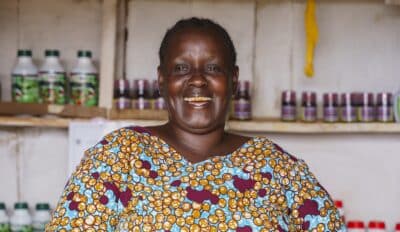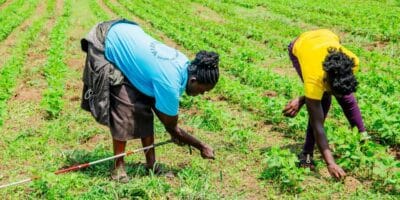News
9 December 2021
Ugandan chilli farmers celebrate first major export
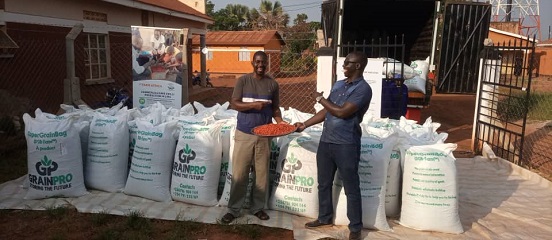
Chilli farmers in Lira, northern Uganda are celebrating their first major export, after selling five metric tonnes of dried chillies in bulk to buyers in Germany. The sacks of chillies left Lira for Kampala last weekend and were exported from the capital city to their new destination earlier today.
After receiving support from Farm Africa and the North East Chilli Producers Association (NECPA), 3,000 smallholder farmers in Lira in northern Uganda are now able to capitalise on growing international demand for varieties of African bird’s eye dried chillies.
Farm Africa and NECPA worked together as part of a three-year project to create a more competitive and profitable chilli value chain in Aromo, Barr and Amach sub-counties in Lira.
Farm Africa strengthened the technical capacity of NECPA extension workers to support market-orientated chilli production with a network of 120 groups, each comprised of 25 farmers. NECPA is now in a position to meet the minimum volume requirements for export and increase their sales.
Farm Africa supported NECPA to deliver training in improved soil and water management, in how to produce chilli organically, and how to meet the high standards of international markets. The organisations also worked together to strengthen the input delivery system in the value chain. The main inputs needed to support the chilli value chain were improved chilli seeds, organic pesticides and solar dryers, which offer an efficient, cost-effective and sustainable means of preserving chillies.
Fifty-three community members were trained as local seed multipliers, who were able to produce quality chilli seeds, leading to 98% of the farmers reporting they had easy access to improved seed, an essential factor in increasing farm productivity and incomes. A further 20 were trained to produce organic pesticides, which they sell to the rest of the farmers. Twenty people were trained as field agents, who buy dried chilli from farmers and sell seeds to them.
Thirty young people were given training in the production and sale of solar dryers. Through the promotion of customised locally built solar drying technology, most farmers improved drying, resulting in quality dried chilli.
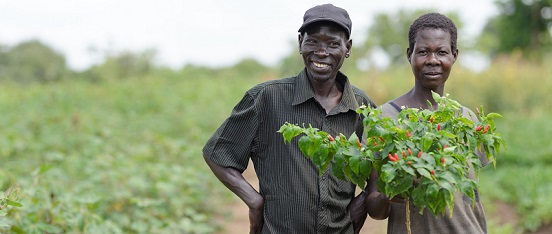
Tom Ogwal, pictured above, is a farmer who was able to improve the quality of his chillies by taking part in the project. He commented: “I continued with my chilli farming because of Farm Africa! Above all it was the seeds supplied and the technical support on chilli farming that Farm Africa gave that made me continue.”
As both the quantity and quality of produce noticeably increased, the dried chilli business became attractive to traders. Farm Africa helped the farmers to gain certification for their chillies, to assure traders the chillies met stringent quality standards. By engaging with the National Ministry of Agriculture, the project supported NECPA to acquire an export licence, offering access to more lucrative export markets.
The project worked hard to engage both men and women in primary production in the chilli value chain. This has helped improve on household decision making around household expenditure and income management. Community feedback has shown that the involvement of men, women and youth in primary chilli production has helped to increase chilli volumes.
Part of the project’s success is attributed to its engagement with local government structures to support activity delivery and ensure sustainable interventions. The project developed a strong working relationship with district and sub county local government structures, including the national line ministry.
The future is now looking brighter for Lira’s chilli sector. Now they are able to export chillies, NECPA will be able to make a return on investments, meaning higher household incomes for the smallholder farmers they buy chillies from.
Meanwhile, sustainable jobs have been created for the community network of field agents, local artisans and seed multipliers, who will continue to offer their services to the community at a fee.
Farm Africa’s chilli project was funded by aBi Development Ltd and Ajahma Charitable Trust.
